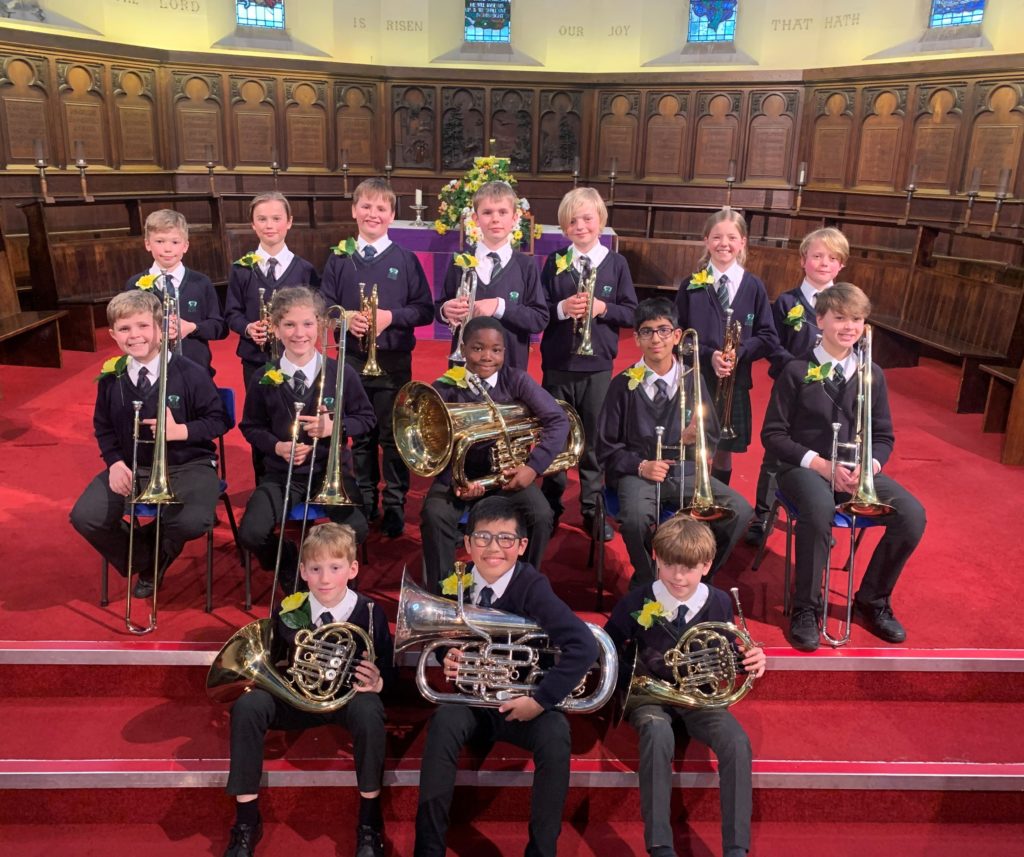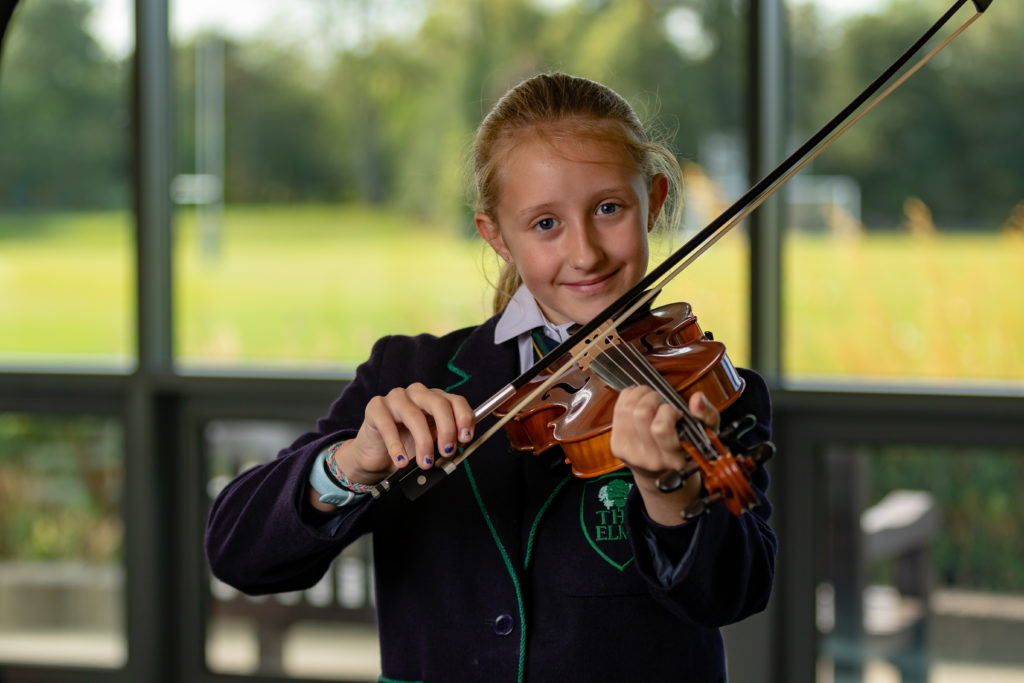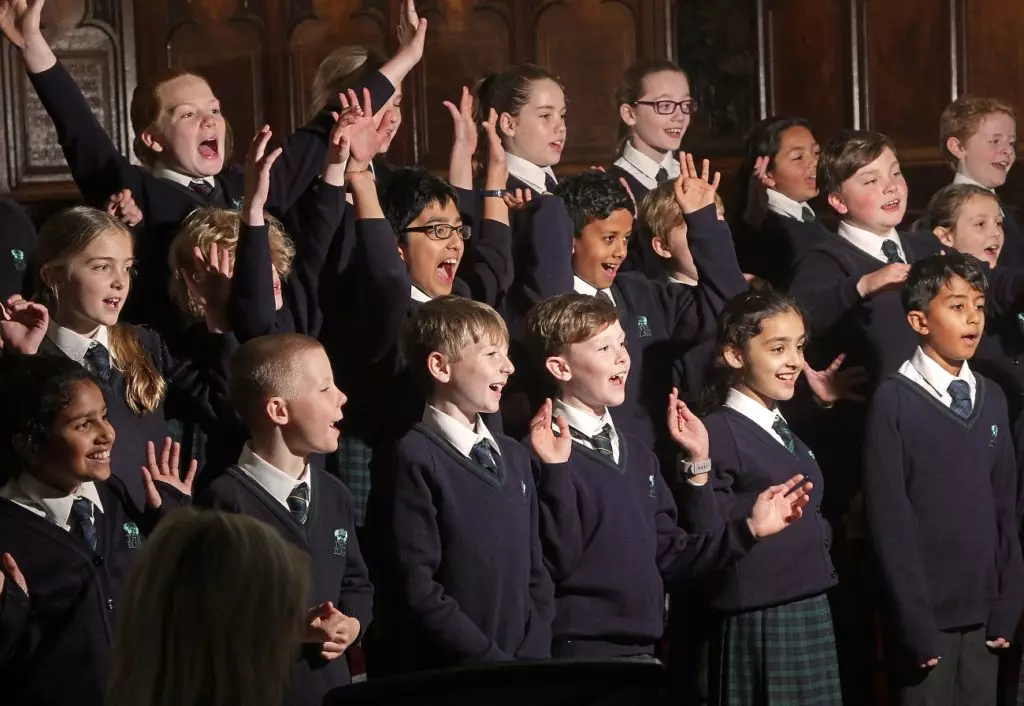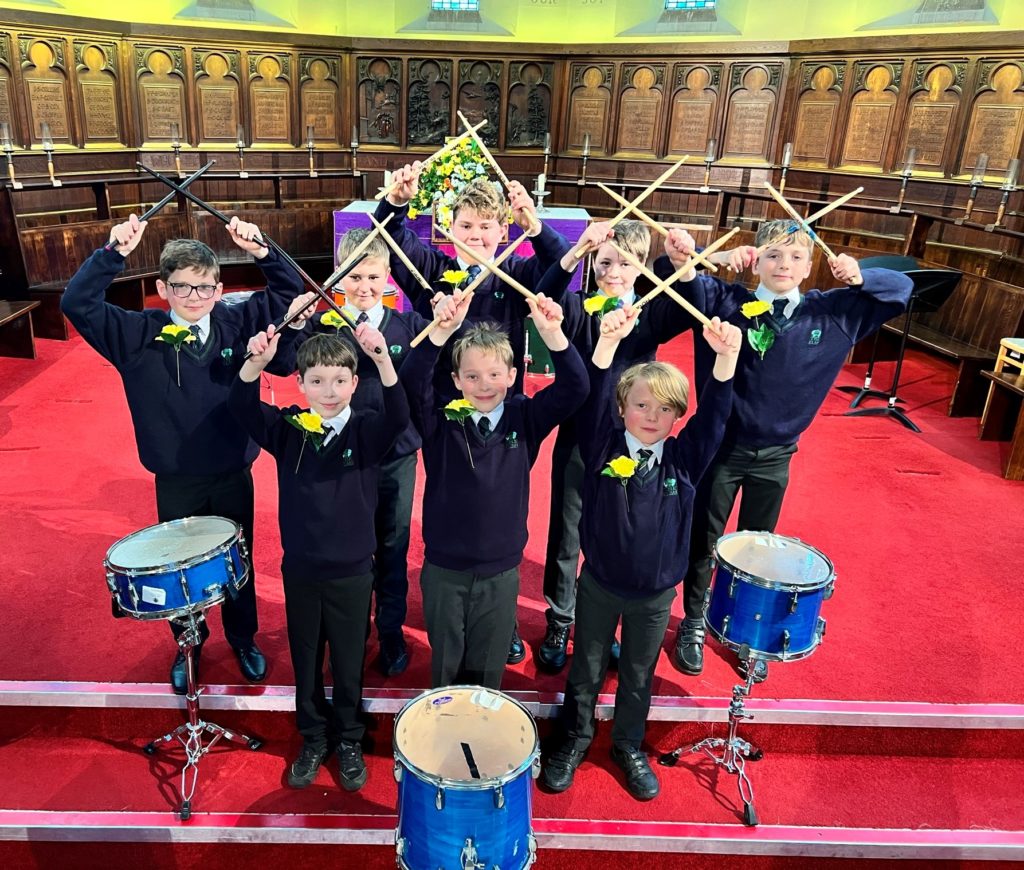

The Benefits of Learning Music
Engaging children in music from a young age nurtures creativity and promotes self-expression. As their musical talent grows, children build up essential skills which can easily be transferred into the classroom to improve performance:
- Self-discipline – Learning an instrument requires regular practise, teaching children to enjoy the process as much as the final result.
- Perseverance – Pupils learn to persevere when things get tricky, whether that’s when faced with a difficult piece of music or a challenging homework task.
- Confidence – Performing in front of an audience builds confidence and belief in one’s own abilities. Miss Pattison says, “We give every single child a solo. By doing this, we normalise performance and provide an introduction to performance nerves.”
- Improved focus and concentration – Studying music can enhance concentration, helping pupils to maintain focus in lessons.
- Positive wellbeing – Research has shown that listening to and creating music can reduce stress levels and increase cognitive ability.
Miss Pattison says, “Learning an instrument requires tenacity and commitment, an especially important lesson for children in a world where we are all accustomed to instant gratification at the touch of a button. The journey to proficiency on a musical instrument may be challenging, but it’s also more rewarding and fulfilling.”
The Elms Offering
Music at The Elms inspires every day with pupils benefiting from specialist teaching in our dedicated Music School. In addition to a varied music curriculum, pupils can develop their instrumental skills in a fun and social environment alongside other pupils by joining one of our 29 school ensembles. “It is the vast opportunities to play and perform music, as well as our school culture, that really helps children to progress,” Miss Pattison explains. “Performances are essential for encouraging and celebrating pupil development.”
A Musical Curriculum
All Elms pupils from Reception to Year 6 enjoy a weekly music lesson, however the focus of these lessons varies according to age.
- Reception – At the start of their musical journey, we encourage your child to find their singing voice with repetitive rhymes and action songs. They will begin to sense pulse and link music to movement.
- Year 1 – Your child will be encouraged to play percussion instruments, both to improve their performance skills and explore ways of making music. Early work on beat, pitch and rhythm lays the foundations for learning a musical instrument.
- Year 2 – Your child will begin learning their first instrument, the recorder, and access formal notation for the first time.
- Years 3-6 – Music lessons in the Junior School will strengthen your child’s rhythmic, pitch and dynamic awareness. The widening vocal range facilitates singing in more than one part. They will explore the works of great composers, develop their appraisal skills by analysing different sounds and explaining their ideas and feelings using theoretical vocabulary. Your child will develop their creativity by selecting, combining and organising musical ideas within musical structures.
Passionate musicians also have the opportunity to advance their instrumental skills through one-to-one private tuition delivered onsite during school hours.
Music for Every Child
Inclusivity is at the heart of our music provision, which is why we sponsor up to one year of instrumental tuition for every child. This orchestral initiative is available to all pupils when they reach Year 3 as well as new starters in Years 3 to 6; it is our way of ensuring that every child can experience the joy of creating music. For many pupils, their participation in the programme sparks a life-long love of music and an affinity to their chosen instrument.
Your child can choose to receive tuition in one of the following instruments:
- Violin
- Viola
- Cello
- Double bass
- Cornet
- French horn
- Tuba
- Trombone
- Flute
- Clarinet
- Oboe
- Bassoon
All instrumentalists take external music examinations in Years 4, 5 and 6, and our excellent pass rate in these exams is the result of an unwavering commitment to musical excellence at The Elms. By the time pupils finish Year 6, many have reached Grade 4 in their instruments, an impressive achievement considering Grade 5 is the benchmark of the performance aspect at GCSE level.
Community spirit
We believe that music is an experience best shared. Our pupils enjoy making music together and learn to work collaboratively with one another in the process. A variety of performance opportunities throughout the school year enable musicians to share their progress with parents and the school community. “Music at The Elms is a real team effort, with parents, teachers and pupils all in it together,” Miss Pattison says.
–
With a reputation for excellent music provision at regional and national level, The Elms helps aspiring musicians go further. Learn more about how your child could flourish at The Elms by booking a private tour of our school with our Admissions team.

